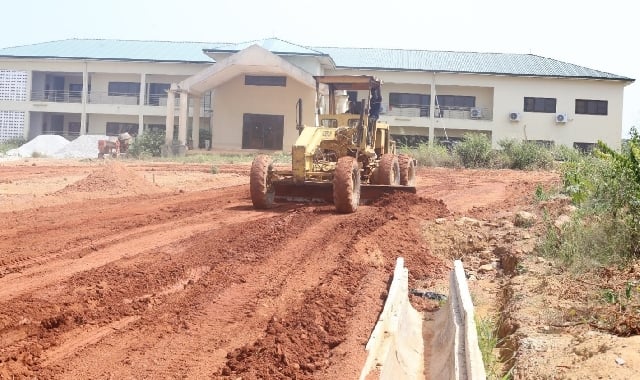The Anomabu Fisheries College project, envisioned as a vital hub for sustainable fishing practices and aquaculture education in Ghana, has been resurrected from a state of prolonged incompletion thanks to a renewed commitment from former President John Dramani Mahama. Initiated during his previous tenure as president in 2011, the project stalled after his departure from office, leaving a partially completed facility with immense potential lying dormant. President Mahama, during a recent visit to the site as part of his “thank you” tour of the Central Region, highlighted the urgency of completing the college and directed the Minister of Fisheries, Emelia Arthur, to collaborate with the Minister of Finance to secure the necessary funding. This directive marks a significant step towards realizing the college’s promise and underscores its importance in bolstering Ghana’s fisheries and aquaculture sector.
The Anomabu Fisheries College, strategically located in the Central Region, boasts a comprehensive infrastructure designed to accommodate 300 students. The facility features modern lecture theatres, a dedicated principal’s residence, and practical learning resources such as fish ponds. Essential amenities like boreholes and a water pumping station are also incorporated into the design, ensuring the self-sufficiency of the campus. While the core structural elements of the college are largely in place, President Mahama acknowledged the need for finishing touches. These include furnishing the lecture theatres and other spaces, equipping the college with essential teaching materials, and completing the campus road network to ensure accessibility. These final components are critical for creating a conducive learning environment and facilitating the smooth operation of the institution.
President Mahama’s emphasis on the minimal remaining work required to operationalize the college reflects his pragmatic approach to revitalizing the project. He underscored that with targeted funding and coordinated efforts, the college can be brought to completion swiftly. This efficiency-focused approach demonstrates a commitment to maximizing the impact of the investment and ensuring that the college can begin contributing to Ghana’s fisheries sector as soon as possible. The directive to prioritize funding for the project signals a clear understanding of the college’s potential to transform fisheries education and promote sustainable practices within the industry.
Ghana’s fisheries sector plays a crucial role in the country’s economy, providing livelihoods for numerous communities and contributing significantly to food security. However, the sector faces numerous challenges, including overfishing, illegal fishing practices, and the impacts of climate change. The establishment of the Anomabu Fisheries College is envisioned as a key strategy to address these challenges by equipping future generations of fisheries professionals with the knowledge and skills necessary for sustainable resource management. The college’s curriculum will focus on promoting responsible fishing practices, fostering innovation in aquaculture, and enhancing the overall productivity and sustainability of the sector.
The college’s emphasis on aquaculture is particularly significant in light of the growing global demand for seafood and the increasing pressure on wild fish stocks. Aquaculture, the farming of aquatic organisms, offers a sustainable alternative to traditional fishing methods and has the potential to contribute significantly to food security and economic growth in Ghana. By providing specialized training in aquaculture techniques and technologies, the Anomabu Fisheries College will empower graduates to establish and manage successful aquaculture ventures, creating employment opportunities and contributing to the diversification of Ghana’s food production.
The completion of the Anomabu Fisheries College represents a strategic investment in the future of Ghana’s fisheries and aquaculture sector. It signifies a commitment to sustainable resource management, enhanced productivity, and the development of a skilled workforce capable of driving innovation within the industry. By prioritizing the project and allocating the necessary resources, the government can ensure that the college fulfills its potential as a center of excellence, equipping future generations with the tools to safeguard Ghana’s aquatic resources and contribute to the long-term prosperity of the sector. The revitalization of this project underscores the importance of investing in education and training to address the complex challenges facing the fisheries sector and ensure its sustainability for generations to come.


